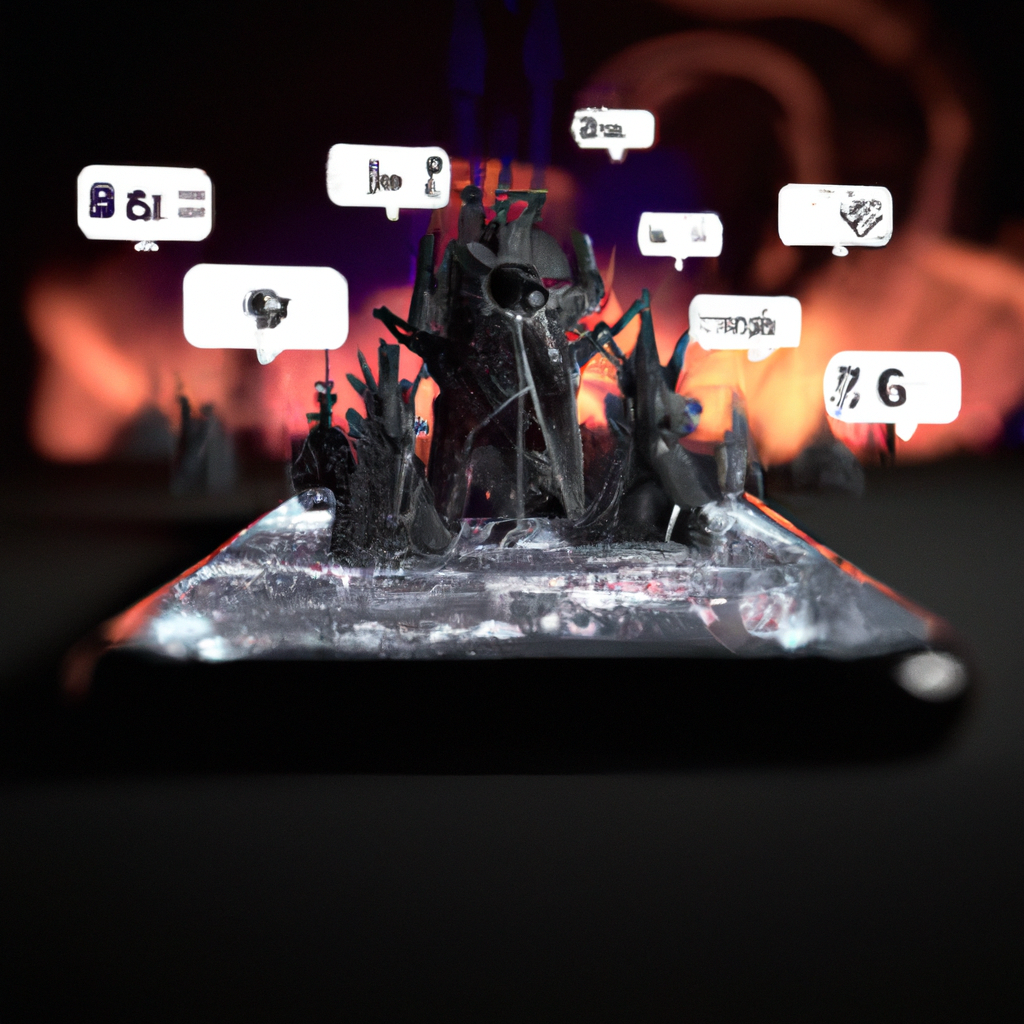
The War Will Be Livestreamed: How Social Media Is Becoming the Battlefield
In today's hyper-connected world, social media platforms have evolved to become more than just tools for communication and sharing cute cat videos. These platforms are now significant battlefields where the war of ideas, narratives, and information is being waged. From political campaigns to protests, riots, and even traditional warfare, social media has become an integral part of the strategies used by different entities, including governments, activists, and ordinary citizens. This post will delve into how social media is transforming the landscape of conflicts, shaping public opinion, and influencing the outcomes of various events worldwide.
The Power of Social Media in Conflict Zones
In conflict zones, social media has emerged as a powerful tool for both disseminating and gathering information. It provides a platform where people can share their stories directly with the world, bypassing traditional media channels and gatekeepers.
Citizen Journalism: A Double-edged Sword
While mainstream media often struggle to gain access to conflict zones, ordinary citizens armed with smartphones and internet connectivity can document events in real-time, providing raw and unfiltered reports. This phenomenon, known as citizen journalism, has been a game-changer in the way we consume news.
-
Pros of Citizen Journalism: It democratizes information and provides perspectives that might otherwise be overlooked. It has led to increased transparency and accountability, particularly in situations where human rights abuses might go undocumented. Take for example the Arab Spring, where social media was instrumental in mobilizing the masses and broadcasting the protests to an international audience.
-
Cons of Citizen Journalism: However, citizen journalism also comes with its own set of challenges. Verification of information can be difficult, and the lack of editorial controls can lead to the spread of misinformation and propaganda. In some cases, it can even escalate conflicts, as seen in the Rohingya crisis in Myanmar, where social media was used to incite violence.
Waging War in the Cyberspace
The battlefield has expanded beyond physical territories to include the digital realm. State and non-state actors alike are harnessing social media platforms to wage information warfare, where the objective is to influence, disrupt, corrupt, or usurp adversarial human and automated decision-making.
Social Media and the Weaponization of Information
The weaponization of information is not a new concept. However, the advent of social media has dramatically amplified its impact and reach. In this context, information (or misinformation) is used as a tool to manipulate public opinion, incite violence, or destabilize societies.
Influence Operations: Manipulation of the Masses
Influence operations, also known as information operations, are coordinated efforts to manipulate or influence the decisions and actions of specific audiences. Social media platforms, with their vast and diverse user base, serve as ideal vehicles for these operations.
For instance, during the 2016 US Presidential election, Russian-affiliated entities launched a sophisticated influence operation that reached millions of Americans through social media. The objective was to sow discord, undermine democratic institutions, and tilt the election in favor of their preferred candidate.
Fake News and Deepfakes: The Misinformation Menace
The rise of 'fake news' and deepfakes is another worrying trend. Misinformation, disinformation, and outright lies can spread like wildfire on social media, often outpacing the truth. The potential of these tools for manipulation and deception is immense and poses a significant threat to social and political stability.
From Passive Observers to Active Participants: How Social Media Platforms are Responding
As social media platforms grapple with their role in conflicts, they're transitioning from being passive observers to active participants. They're taking steps to mitigate the harmful effects of misinformation and influence operations.
Fact-Checking and Content Moderation
To combat misinformation, platforms such as Facebook and Twitter have ramped up their fact-checking efforts and introduced more stringent content moderation policies. They're tagging and reducing the distribution of content that is deemed to be false or misleading.
Tackling Influence Operations
Social media platforms are also investing in advanced technologies to detect and disrupt coordinated influence operations. They're working closely with law enforcement agencies and third-party fact-checkers to identify and take down fake accounts used for these campaigns.
The Future: Navigating the Social Media Battlefield
Given the pervasive role of social media in conflicts, it's clear that the battlefield has shifted to the digital realm. As we move forward, it's critical to understand and navigate this new terrain.
Educating the Public
Educating the public about media literacy is of paramount importance. People need to be taught how to critically evaluate the information they consume online and understand the potential implications of sharing unverified content.
Strengthening International Cooperation
Addressing the challenges posed by the weaponization of social media requires global cooperation. Governments, tech companies, and civil society must work together to develop norms and regulations for the digital space.
Investing in Technology and Human Expertise
Lastly, continued investment in technology and human expertise is necessary to stay ahead of the evolving tactics used in information warfare. Artificial intelligence, machine learning, and data science can all play a pivotal role in detecting and countering these threats.
In conclusion, social media has undeniably become a new kind of battlefield. The stakes are high, as the outcome of these digital conflicts can shape the course of real-world events. Therefore, it is essential to understand the dynamics of this battlefield and take proactive measures to safeguard our societies from the perils of information warfare.